Boost Your Mental Health With Bird-watching
Updated: Apr. 11, 2024
Learn about the science behind why observing backyard birds can both support your mental health and create a needed reset from daily demands.
On This Page
Can Birds Improve Your Mental Health?
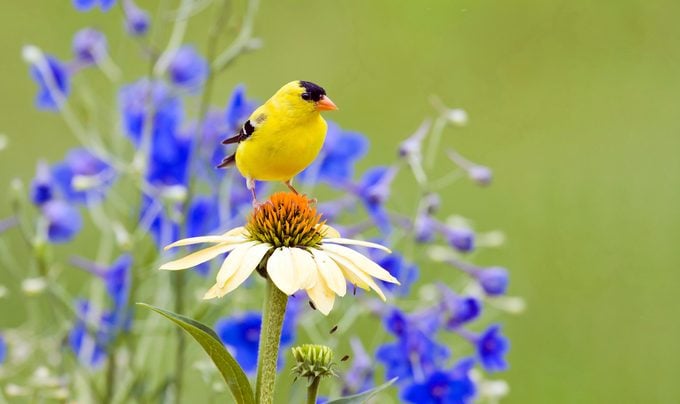
Cardinals, chickadees, juncos, woodpeckers … action! My feeders are full of life. I’ve been feeding birds since I was a little kid. But I only recently reflected on why I have kept feeding them for so many years.
Birds can find food on their own. I know their survival doesn’t depend on me, although I do hope my bird feeders help them in hard times. Personally, feeding birds makes my life better. Watching them right outside my window brings me reliable peace and joy. And there is research that shows watching birds boosts mental health.
Discover the mental and physical health benefits of gardening.
Finding Joy in Feeding Birds
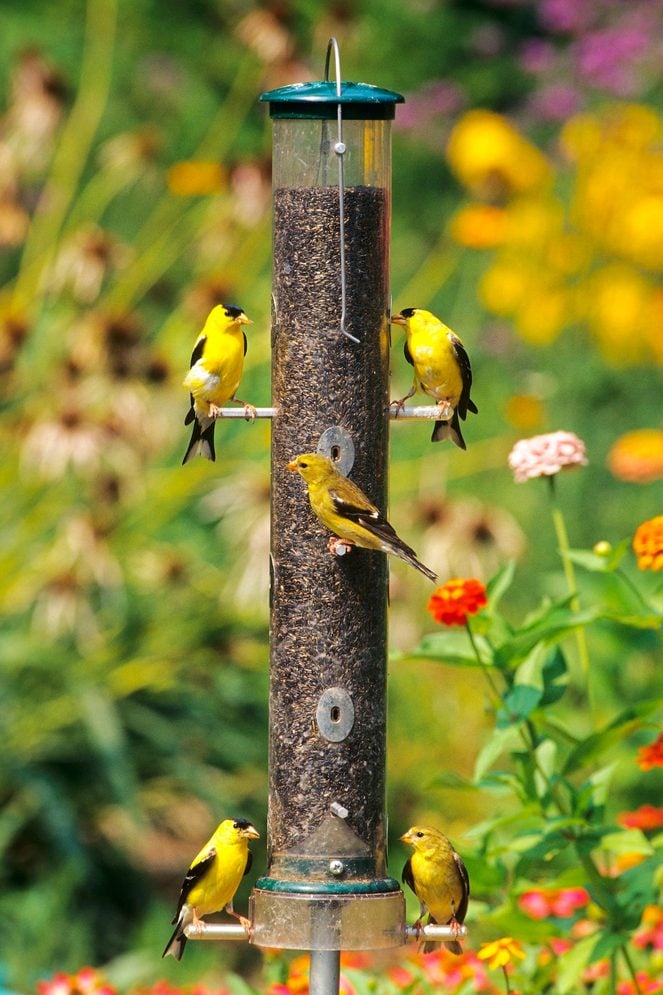
It’s such a simple way to improve my mental well-being. And it’s not just me. Feeding birds as a pastime exploded in popularity during the COVID-19 pandemic. A recent Audubon article described a measurable boom in birdseed sales that began then and continues today—evidence that bird feeding fulfills our human need for connection.
I was delighted to see that the Cornell Lab of Ornithology’s Project FeederWatch collects data on these benefits. Their current data entry portal includes two places for observers to rank the emotional states they experience while conducting monthly feeder surveys. I had no hesitation in giving my bird survey the happiest ranking available!
My friend, Alanna, posted a picture of her brand-new but still empty feeders on Facebook. She was worried because birds were not visiting them. I commented on the post, sharing perspective on being patient while her neighborhood birds discover her offerings. I then followed up with an email asking if she could tell me why she decided to start feeding at the start of 2024.
She responded: “As someone who struggles with anxiety, it can be almost debilitating to think about getting out of the house in pursuit of birding opportunities. Having an at-home bird feeder alleviates that anxiety.” I told her I also find observing birds boosts mental health.
The Healing Power of Nature
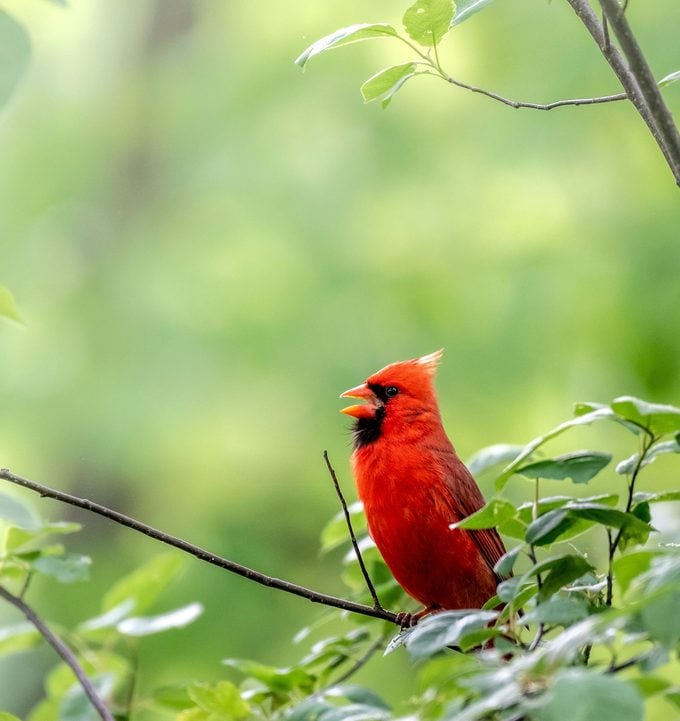
The number of books touting the positive effects of exposure to nature on mental health increases yearly. A quick search nets a flock of popular titles that reflect the underlying surge in academic studies combining interdisciplinary research from fields as far-flung as ecology, theology, psychology, medical science, urban planning, gardening and landscape architecture—well, the connections are seemingly endless.
But why is nature so healing? Two psychology professors at the University of Michigan, Rachel and Stephen Kaplan, found an answer through their research on two types of attention: directed attention and fascination. Because we spend much of our time in directed attention, focused on doing and thinking, they found this results in directed energy fatigue. And spending time in nature, a form of fascination, allows people to reset from task-driven fatigue.
If you see a cardinal, here’s what it means.
Building Resilience
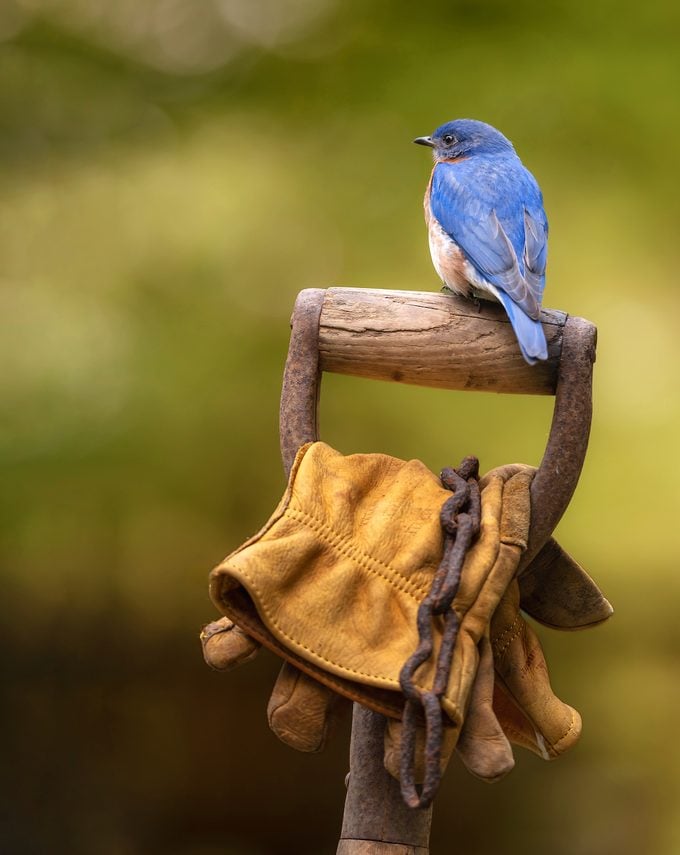
Following this same thread, Terry Hartig, a professor in the psychology department of Uppsala University in Sweden, conducted research on “restorative environments.” In particular, his research focused on how contact with nature can help build resilience in several areas of modern life.
Licensed therapist Tammah Watts first experienced the healing properties of bird-watching in the face of chronic pain. Eager to share her discoveries, she penned a how-to guide called Keep Looking Up, full of tips for connecting birds with mental and spiritual well-being.
And in one recent study, researchers directed more than 1,200 participants to use a smartphone app called Urban Mind to collect data on how they felt after hearing or seeing birds. Encouragingly, the results concluded that observing birds had positive effects on people with and without depression.
So it seems like the link between watching birds and mental health is not just wishful thinking—it’s a researched and documented subject of many scientific studies. More simply, think of watching your feeders as a little spa for your mind and spirit— and it’s one with unlimited visits.
Here’s to your mental health, and the well-being of your feeder birds!
Restorative Reflections
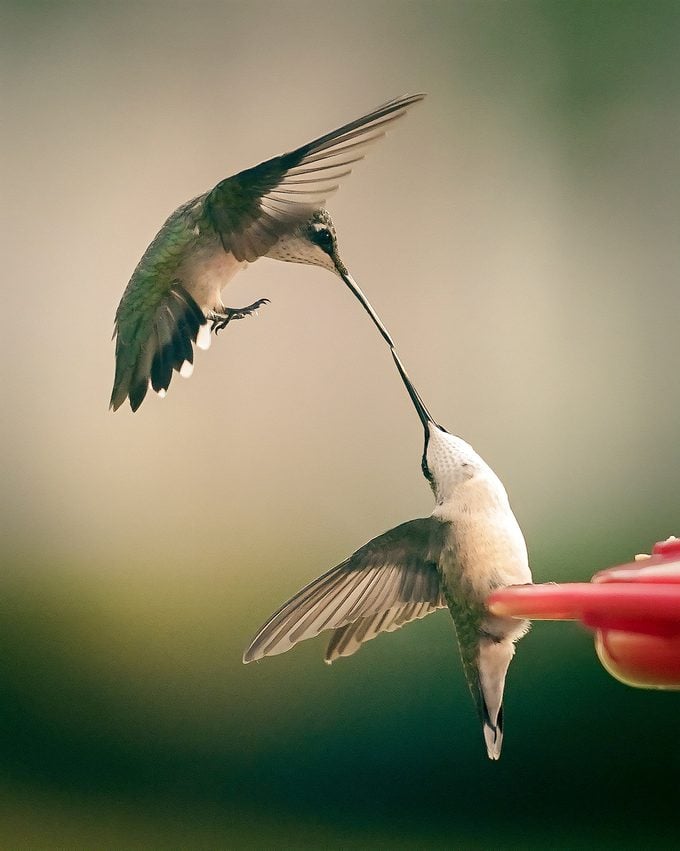
Here are four different ways I experience mental restoration with feeder-watching. This list may give you some ideas for your own experience.
- Birds pull me out of my worries and self-absorption. Looking at birds, even for an instant, I find respite from everyday worries and planning. I’m living in a restorative frame of mind when I revel in the brilliant scarlet of a cardinal.
- Birds mark the seasons. I look forward to a purple finch arriving from the North as much as I anticipate American goldfinches changing from drab beige to brilliant yellow in early spring. My feeder birds remind me of the resilience of life.
- Birds bring unexpected drama. Anticipation and excitement are therapeutic to me. A sharp-shinned hawk swoops in to study nearby birds, and I am caught up in the tension of the chase.
- Birds are poetry in motion: graceful movement, a palette of color, shapes, patterns and behaviors. The poet Emily Dickinson once wrote “Hope is the thing with feathers,” and it’s still true today.
Sources
- CHAAD – Spend Time Outside to Improve ADHD Symptoms
- American Psychological Association – Green Is Good for You
- Uppsala University – Nature-based biopsychosocial resilience
- Springer Nature – Restoration in Nature: Beyond the Conventional Narrative
- National Audubon Association
- Cornell Lab of Ornithology – Project FeederWatch
- Scientific Reports – Smartphone-based ecological momentary assessment reveals mental health benefits of birdlife
- Science Advances – Linking the nonmaterial dimensions of human-nature relations and human well-being through cultural ecosystem services
Why Trust Us
For nearly 30 years, Birds & Blooms, a Trusted Media Brand, has been inspiring readers to have a lifelong love of birding, gardening and nature. We are the #1 bird and garden magazine in North America and a trusted online resource for over 15 million outdoor enthusiasts annually. Our library of thousands of informative articles and how-tos has been written by trusted journalists and fact-checked by bird and garden experts for accuracy. In addition to our staff of experienced gardeners and bird-watchers, we hire individuals who have years of education and hands-on experience with birding, bird feeding, gardening, butterflies, bugs and more. Learn more about Birds & Blooms, our field editor program, and our submission guidelines.

